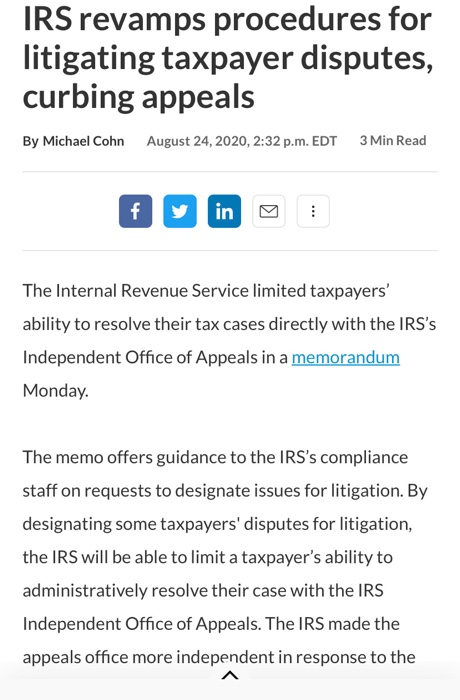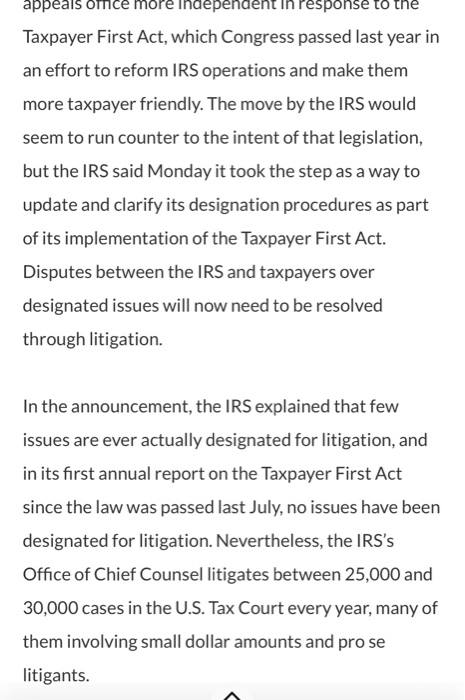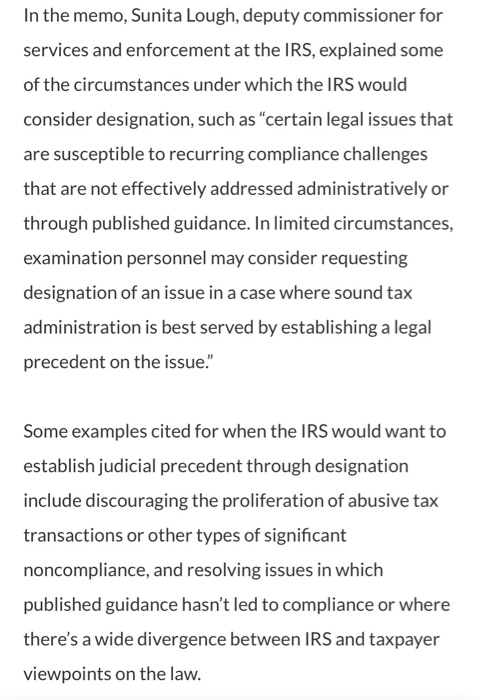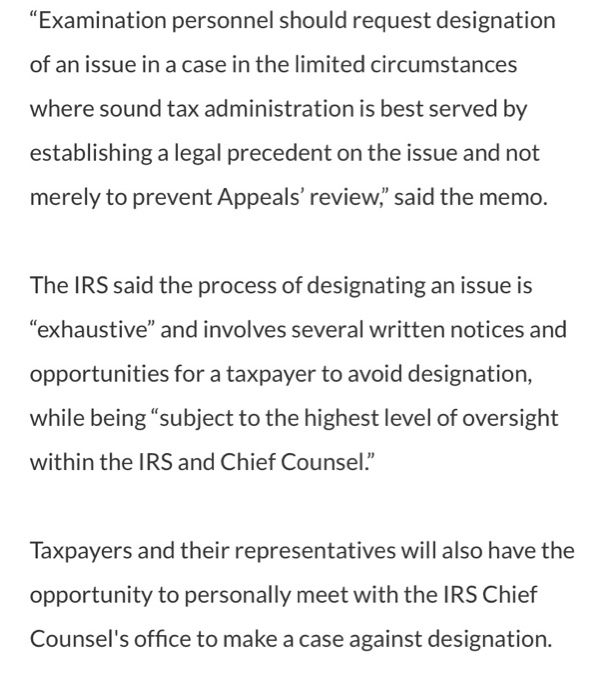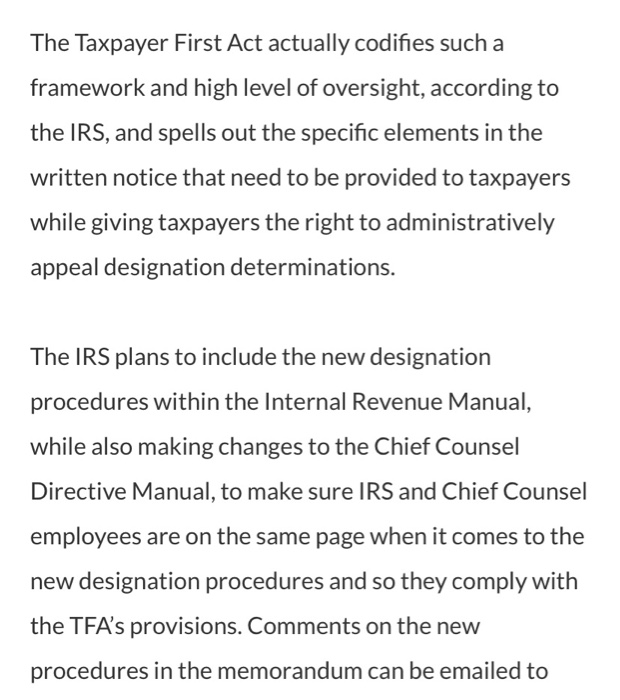Please follow the link below to a recent article in Accounting Today. After reading the article post your thoughts about it whether this might be a good change or bad. Also respond to one other classmate on their thoughts. Agree/disagree? Why? IRS revamps procedures for litigating taxpayer disputes, curbing appeals By Michael Cohn August 24, 2020, 2:32 p.m. EDT 3 Min Read f y in The Internal Revenue Service limited taxpayers' ability to resolve their tax cases directly with the IRS's Independent Office of Appeals in a memorandum Monday. The memo offers guidance to the IRS's compliance staff on requests to designate issues for litigation. By designating some taxpayers' disputes for litigation, the IRS will be able to limit a taxpayer's ability to administratively resolve their case with the IRS Independent Office of Appeals. The IRS made the appeals office more independent in response to the appeals once more independent in response to the Taxpayer First Act, which Congress passed last year in an effort to reform IRS operations and make them more taxpayer friendly. The move by the IRS would seem to run counter to the intent of that legislation, but the IRS said Monday it took the step as a way to update and clarify its designation procedures as part of its implementation of the Taxpayer First Act. Disputes between the IRS and taxpayers over designated issues will now need to be resolved through litigation. In the announcement, the IRS explained that few issues are ever actually designated for litigation, and in its first annual report on the Taxpayer First Act since the law was passed last July, no issues have been designated for litigation. Nevertheless, the IRS's Office of Chief Counsel litigates between 25,000 and 30,000 cases in the U.S. Tax Court every year, many of them involving small dollar amounts and pro se litigants. In the memo, Sunita Lough, deputy commissioner for services and enforcement at the IRS, explained some of the circumstances under which the IRS would consider designation, such as "certain legal issues that are susceptible to recurring compliance challenges that are not effectively addressed administratively or through published guidance. In limited circumstances, examination personnel may consider requesting designation of an issue in a case where sound tax administration is best served by establishing a legal precedent on the issue." Some examples cited for when the IRS would want to establish judicial precedent through designation include discouraging the proliferation of abusive tax transactions or other types of significant noncompliance, and resolving issues in which published guidance hasn't led to compliance or where there's a wide divergence between IRS and taxpayer viewpoints on the law. "Examination personnel should request designation of an issue in a case in the limited circumstances where sound tax administration is best served by establishing a legal precedent on the issue and not merely to prevent Appeals' review," said the memo. The IRS said the process of designating an issue is "exhaustive and involves several written notices and opportunities for a taxpayer to avoid designation, while being subject to the highest level of oversight within the IRS and Chief Counsel." Taxpayers and their representatives will also have the opportunity to personally meet with the IRS Chief Counsel's office to make a case against designation. The Taxpayer First Act actually codifies such a framework and high level of oversight, according to the IRS, and spells out the specific elements in the written notice that need to be provided to taxpayers while giving taxpayers the right to administratively appeal designation determinations. The IRS plans to include the new designation procedures within the Internal Revenue Manual, while also making changes to the Chief Counsel Directive Manual, to make sure IRS and Chief Counsel employees are on the same page when it comes to the new designation procedures and so they comply with the TFA's provisions. Comments on the new procedures in the memorandum can be emailed to

